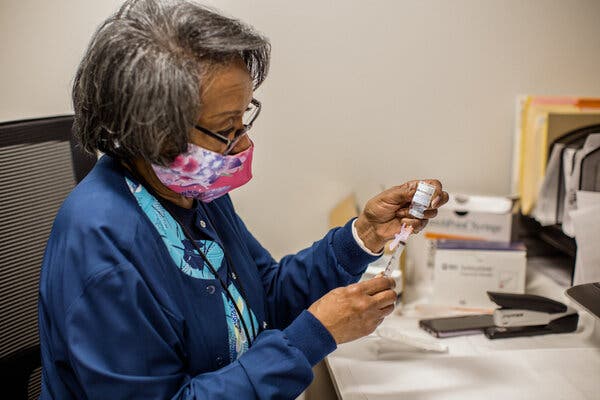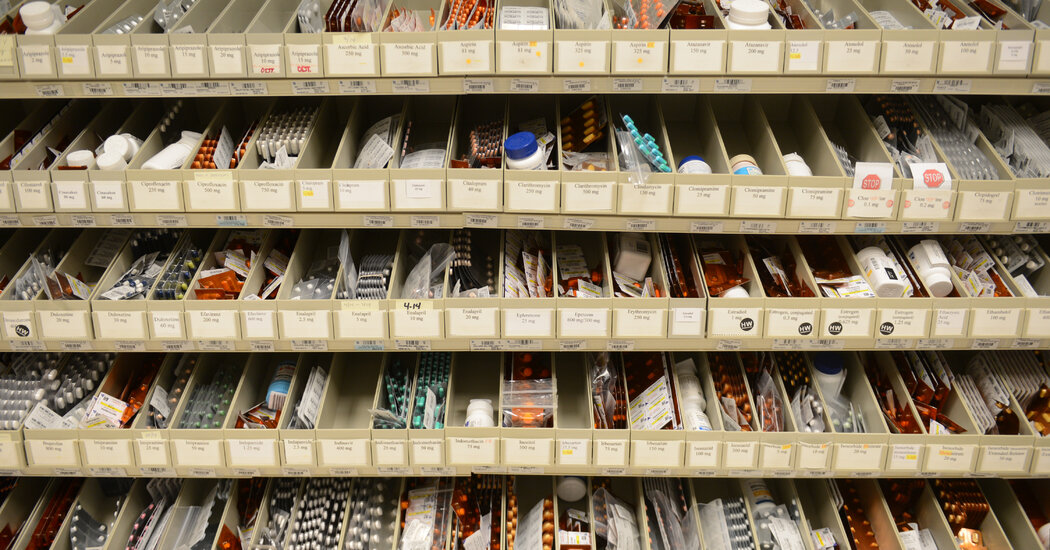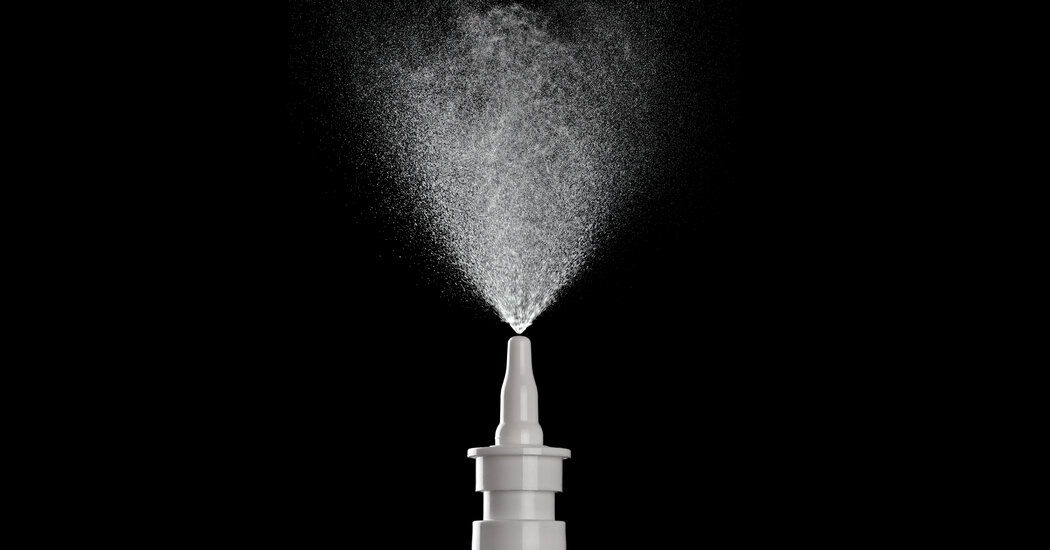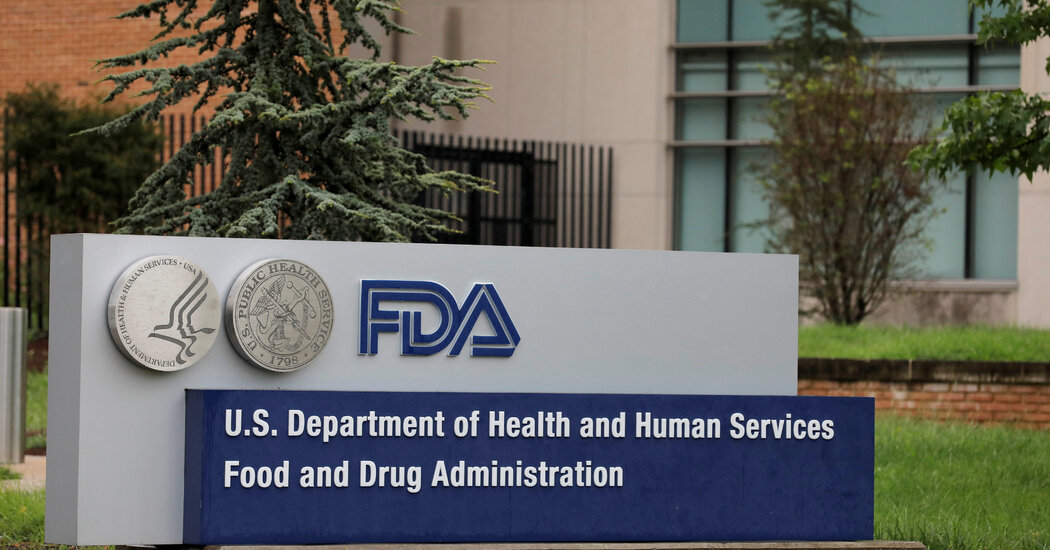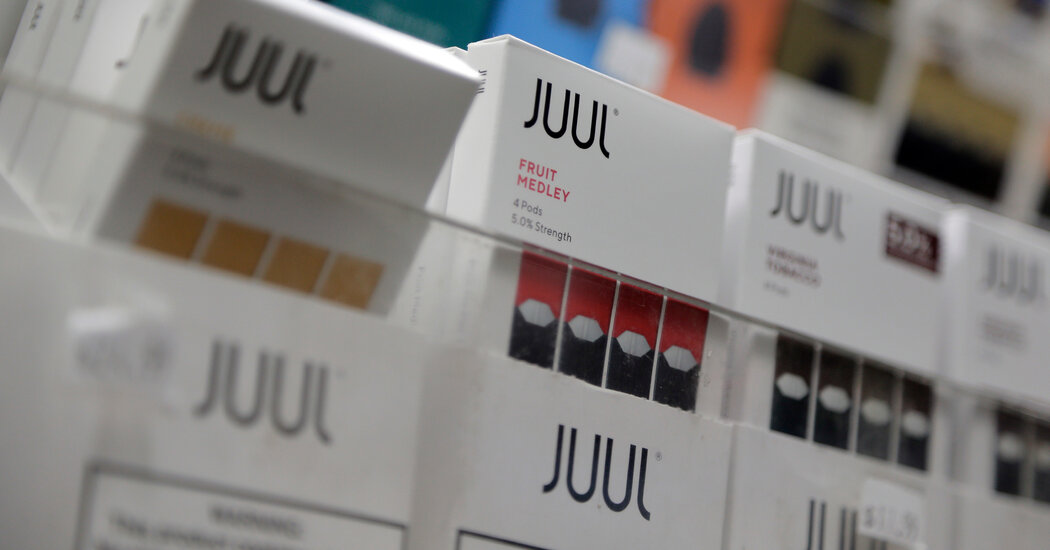Sacklers Gave Millions to Institution That Advises on Opioid Policy
Even as the nation’s drug crisis mounted, the National Academies of Sciences, Engineering and Medicine continued to accept funds from some members of the Sackler family, including those involved with Purdue Pharma.For the past decade, the White House and Congress have relied on the National Academies of Sciences, Engineering and Medicine, a renowned advisory group, to help shape the federal response to the opioid crisis, whether by convening expert panels or delivering policy recommendations and reports.Yet officials with the National Academies have kept quiet about one thing: their decision to accept roughly $19 million in donations from members of the Sackler family, the owners of Purdue Pharma, the maker of the drug OxyContin that is notorious for fueling the opioid epidemic.The opioid crisis has led to hundreds of thousands of overdose deaths, spawned lawsuits and forced other institutions to publicly distance themselves from Sackler money or to acknowledge potential conflicts of interest from ties to Purdue Pharma. The National Academies has largely avoided such scrutiny as it continues to advise the government on painkillers.“I didn’t know they were taking private money,” Michael Von Korff, a prominent pain care researcher, said. “It sounds like insanity to take money from principals of drug companies and then do reports related to opioids. I am really shocked.”Unlike the World Health Organization, which was accused of being manipulated by Purdue and later retracted two opioid policy reports, the National Academies has not conducted a public review to determine if the Sackler donations influenced its policymaking, despite issuing two major reports that influenced national opioid policy.One of those reports, released in 2011 and now largely discredited, claimed that 100 million Americans suffered from chronic pain — an estimate that proved to be highly inflated. Still, it gave drugmakers another talking point for aggressive sales campaigns, primed doctors to prescribe opioids at an accelerating rate and influenced the Food and Drug Administration to approve at least one highly potent opioid.Another problem arose in 2016, months after the National Academies received a $10 million Sackler family donation. The F.D.A. had tapped the institution to form a committee to issue new recommendations on opioids. But one senator took exception to some of the members selected by the Academies, complaining they had “substantial ties” to opioid makers, including Purdue. Before work began, four people were removed from the panel.The headquarters of Purdue Pharma in Stamford, Conn., in 2018.George Etheredge for The New York TimesThe National Academies is a nongovernmental institution, chartered by Abraham Lincoln in 1863, to serve as an independent adviser to the nation on science and medicine. Members of the Academies are elected each year — a career-capping honor for scientists and doctors.In recent years, though, the advisory group has come under criticism for lapses over disclosing conflicts of interest in reports on biotechnology, genetically modified food and pharmaceutical pricing. Lisa Bero, chief scientist at the University of Colorado Center for Bioethics and Humanities, said the group’s longtime failure to disclose financial ties between committee members and industry placed the Academies in the “dark ages” of research integrity.Accepting millions of dollars from the Sackler family while advising the federal government on pain policy “would be considered a conflict of interest under almost any conflict-of-interest policy I’ve ever seen,” Dr. Bero said.Lawmakers and others have issued investigations into the business practices of members of the Sackler family and lavish spending by Purdue that amplified the voices of doctors and medical organizations wanting more opioid prescriptions despite soaring overdose deaths.Yet aside from an article in a medical journal in 2019, the National Academies has not drawn public attention. After internal meetings, it quietly removed the Sackler name from the conferences and awards the family once helped sponsor.Megan Lowry, a spokeswoman for the National Academies, said in a statement that the Sackler donations “were never used to support any advisory activities on the use of opioids or on efforts to counter the opioid crisis.” Ms. Lowry added that the organization had been prevented from returning the Sackler money because of legal restrictions and “donor unwillingness to accept returned funds.” The Academies declined to make senior officials available for interviews.The Sackler donations emerged as an internal issue for the advisory group in 2019, when members of the governing council were briefed about the money. Sylvester Gates, known as Jim, a prominent Brown University physicist on the council, said members were “outraged” and wanted to ensure the funds did not influence the work of the Academies. But returning the money, Dr. Gates said, “was more complicated than the string theory I studied.”The Lincoln SocietyRaymond and Beverly Sackler in 2004. The family branch’s donations to the National Academies began in 2008.Taco van der Eb/Hollandse Hoogte, via Redux PicturesThe National Academies receives 70 percent of its budget from federal funding, with the remainder from its endowment and private donors, including corporations that sell fossil fuels, chemicals and myriad prescription drugs. Members of the Sackler family who were among the most heavily involved in running Purdue Pharma made their first donations to the National Academies in 2008, when Dr. Raymond Sackler, and his wife, Beverly Sackler, and the couple’s foundation, started contributing, according to Academy treasurer reports. Dr. and Ms. Sackler died in 2017 and 2019, respectively.Daniel S. Connolly, a lawyer for the Raymond and Beverly Sackler branch of the family, said the couple gave $13.1 million, which differs slightly from the $14 million listed in the National Academies treasurer reports. The donations were intended to support the National Academy of Sciences “in ways that are clearly described publicly as having nothing at all to do with pain, medications or anything related to the company,” Mr. Connolly said.The reports from the National Academies treasurer describe science-related events, prizes and studies supported by Raymond and Beverly Sackler. Donations from Dame Jillian Sackler, whose husband, Arthur, died years before OxyContin arrived on the market, began in 2000 in amounts that by 2017 reached $5 million, reports show. Those donations funded a series of scientific meetings, the treasurer reports say. The gifts qualified the Sackler donors for the institution’s Lincoln Society, consisting of top givers who enhance the Academies’ “impact as advisers to the nation,” according to the 2021 treasurer report. The Academies invested the funds, which grew to more than $31 million by the end of 2021, the most recent accounting available.A Flawed ReportA worker removed the Sackler name from the Tufts Medical Center campus in Boston in 2019.Cody O’Loughlin for The New York TimesAs the Sackler donations grew, a Purdue Pharma lobbyist was trying to make inroads with the Academies, according to records released in lawsuits against opioid makers. The Pain Care Forum, a group co-founded by Burt Rosen, the Purdue lobbyist, pushed for legislation introduced in 2007 and 2009 that included calling for a National Academies report to “increase the recognition of pain as a significant public health problem.”Soon after the measure passed in a 2010 law, Mr. Rosen convened the Pain Care Forum at a 10 p.m. gathering to focus on “meetings with the Institute of Medicine,” the former name for the National Academy of Medicine, and for “membership on I.O.M. Committee.”At the same time, the National Academies was forming the committee that would produce its 2011 opioids report, which included the estimate that about 100 million or 42 percent of American adults were in pain, a figure that other researchers later found to be significantly inflated. The report described chronic pain that limited function and cost the nation billions of dollars in lost salary and wages. Later estimates from the Centers for Disease Control and Prevention defined chronic pain by different categories of severity, saying the condition affects 7 percent to 21 percent of Americans.The report did not disclose any conflicts of interest for committee members nor did it disclose the Sackler funds. A spokeswoman for the National Academies said it did not release members’ conflict statements.But among the panelists chosen, Dr. Richard Payne was president of the American Pain Society, a physicians group, in 2003 and 2004, which at the time drew more than $900,000 from Purdue. Dr. Payne died in 2019.Another panelist, Myra Christopher, was swapping emails in 2007 with Purdue staff about “talking points” to respond to a news broadcast critical of opioids, records released in a Senate Finance Committee investigation in 2020 show.At the time that the 2011 report was written, Ms. Christopher was president of the Center for Practical Bioethics, a nonprofit based in Kansas City, Mo. Purdue gave $934,770 to the organization that year. Asked about the funding, John Carney, a former chief executive at the center, sent an opinion article that stated the group’s donors did not dictate any of its work. Ms. Christopher declined to comment.The 2011 report, which allowed pharmaceutical companies to argue that doctors should prescribe more opioids, came out even as the White House announced a very different message — that the nation was facing an opioid addiction crisis.Soon after the National Academies report was issued, Dr. Andrew Kolodny, president of Physicians for Responsible Opioid Prescribing, emailed the institution and asked whether it would disclose that Ms. Christopher’s organization had received funds from Purdue.“No, sorry, can’t do that,” Clyde Behney, an official with the Academies replied in an email in August 2011 reviewed by The New York Times. “Keep in mind that the report is done and released, so the future is more important than the past.”Mr. Behney declined to comment. In a statement, the National Academies said it published an article in JAMA to explain how the committee arrived at the estimate that 100 million Americans were in pain. And the article, by Dr. Victor Dzau, president of the National Academy of Medicine, said that “conflict of interest is not an issue for the authors of the report,” who he said were carefully vetted. The JAMA article made no mention of Sackler family donations.Dr. Dzau later wrote a letter to JAMA clarifying that he should have disclosed — in that article and others — conflicts of his own, including funds he received from Medtronic, which made a device to infuse pain medication.The outsize pain figure was invoked routinely over the years — including in 2012 by Purdue’s own lawyers, who described the figure as evidence of pain that was “untreated or under-treated” in response to a Senate inquiry. Federal officials also highlighted the statistic. In 2014, Dr. Margaret Hamburg, the F.D.A. commissioner at the time, cited the figure of 100 million people “living with severe chronic pain” to explain why the agency approved a controversial and potent opioid called Zohydro.Another Panel QuestionedDr. Robert Califf, the F.D.A. commissioner, in April convened a meeting of experts to review study methods for evaluating long-term use of opioids.Anna Rose Layden for The New York TimesBy 2016, a new set of National Academies committee members would face scrutiny.Opioid overdose deaths were soaring that year and would soon overtake car crashes as the leading cause of death in the United States. Dr. Robert Califf, then the acting commissioner of the F.D.A., was under pressure from Congress to do something.He turned to the National Academies. Citing the 100 million people in pain, Dr. Califf and other top F.D.A. officials wrote in an article in The New England Journal of Medicine that the institution “brings an unbiased and highly respected perspective on these issues that can help us revise our framework.” (Dr. Califf was elected to be a member of the Academies later that year.)Soon after, names were floated to sit on the committee, leading Senator Ron Wyden, a Democrat of Oregon, to raise concerns about “potential conflicts of interest and bias” in a letter to Dr. Dzau, the National Academy of Medicine president. One person’s work, funded by Purdue, used the term “pseudoaddiction” to downplay the lure of opioids, the senator noted.The National Academies then replaced four panelists. The committee’s final report was widely respected and remains a key document for the F.D.A., which said it had consulted a variety of sources to address the drug crisis. Dr. Califf continues to rely on the report, which called for a “fundamental shift” in the nation’s approach to prescribing opioids.Shannon Hatch, an agency spokeswoman, said that the F.D.A. was not aware that the Sackler family donated to the Academies and that the 2017 report speaks for itself.Two members of the panel — Richard Bonnie, chairman of the committee and director of the University of Virginia Institute of Law, Psychiatry and Public Policy, and Dr. Aaron Kesselheim, a Harvard Medical School professor — said they were not aware of the Sackler family donations until asked about it by The Times. “I certainly didn’t feel any influence or pressure or expectations of what we would say from anyone at the National Academies,” Dr. Kesselheim said.Two years after that report was released, The BMJ examined the potential conflicts of Dr. Dzau and of members of yet another Academies committee convened to examine opioid-prescribing guidelines.Since then, the Justice Department announced an $8 billion civil and criminal settlement with Purdue Pharma and a civil settlement with members of the Sackler family. Those Sackler family members agreed to pay $225 million to resolve civil claims, and said they acted “ethically and lawfully.” Members of the family have not faced criminal charges.A bankruptcy plan to reorganize Purdue and resolve thousands of opioid cases was challenged over the Sacklers’ proposed conditions and is under appellate review.Purdue Pharma was asked by The Times to respond to a list of questions about its contacts with the Academies. But Michele Sharp, a Purdue spokeswoman, did not respond directly to any of those issues. Instead, she said the company was focused on its bankruptcy and settlement proceedings. “The settlement would deliver over $10 billion of value for opioid crisis abatement, overdose rescue medicines, and victim compensation,” she said.Institutions that more publicly examined their use of Sackler donations include Tufts University, which released a review of possible conflicts of interest related to pain research education funded by Purdue Pharma. Concerns noted in the report included a senior Purdue executive’s delivering lectures to students each semester.The World Health Organization in 2019 retracted two guidance documents on opioid policy after lawmakers aired concerns about ties to opioid makers, including a Purdue subsidiary, among report authors and funders.Going forward, experts in nonprofit law said the National Academies was in the unusual position of having millions of dollars with no plans for their use.Some universities, including Brown and Tufts, have dedicated their respective funds from the Sacklers to address the prevention or treatment of addiction.Given the devastation of the opioid crisis, Michael West, senior vice president of the New York Council of Nonprofits, said that it would be worth the effort for the Academies to follow their lead.“This would be a way,” he said, “of trying to make it right.”Alain Delaquérière
Read more →

